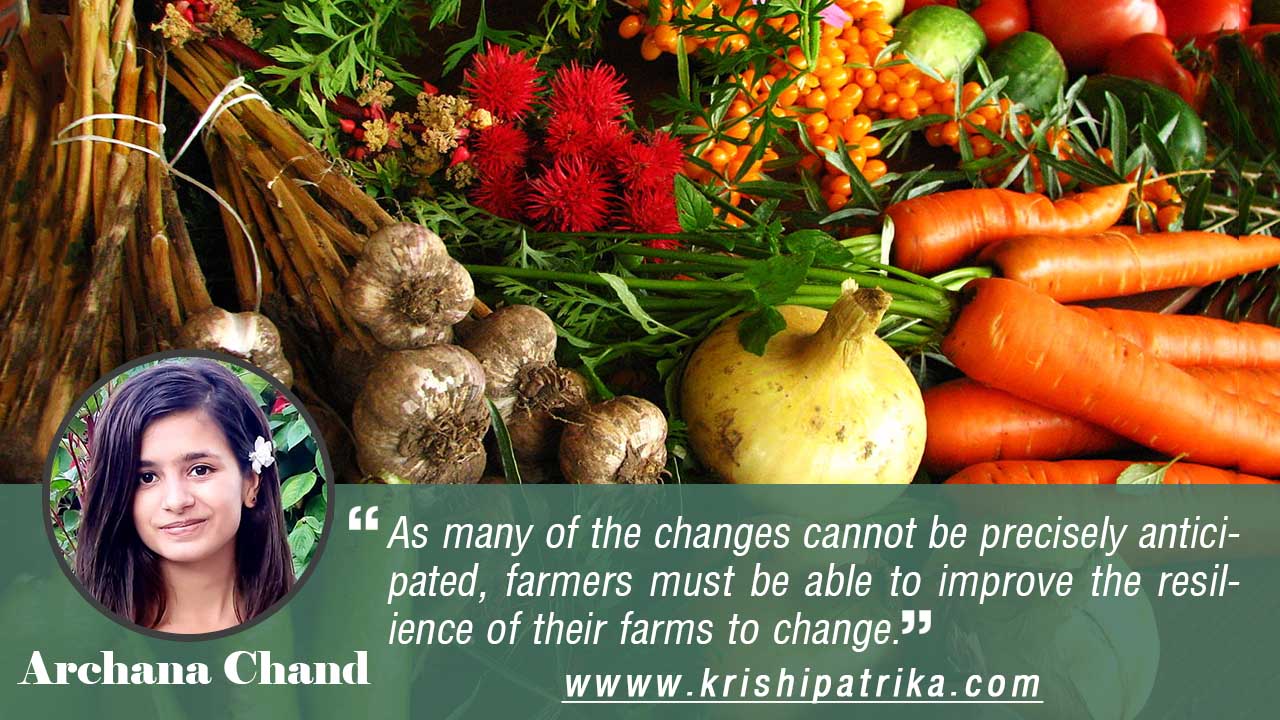
Changes affecting agriculture, such as rising oil prices, market volatility, climate change, or this pandemic, raise the issue of how to sustain agricultural ecosystem services. Farmers are faced with farm dynamics and disruptions caused by local, regional, national, or global patterns or shocks. These changes will bring new challenges to farmers. Farmers in developing countries like Nepal need resources to help them adapt to these new circumstances. They need to cope, adapt, and shapeshift. Adaptation is not recent. In other words, farmers need to develop the resilience of their farms.
Changing weather has always been a problem for farmers, and they have established ways to respond. The phenomenon of global climate change makes the ability to adapt much more important, as adaptation would need to take place at a much faster rate. Similarly, COVID 19 has been a new challenge to the farmers. Millions of Nepalese, including a large number of young people, who used to stay abroad, have already returned to Nepal. The prolonged effect of COVID-19 could cause agricultural powerhouse countries such as China, the United States, and India to place a ban on food exports. As a result, continuous food shortages resulting in country-wide malnutrition is inevitable in countries like Nepal. Also at a time when low supply is causing market imbalance, market prices are expected to increase as soon as the economy resumes. Moreover, an increase of every cent of the dollar would mean an increase in the import challenges.
As many of the changes cannot be precisely anticipated, farmers must be able to improve the resilience of their farms to change. So In this context, Organic Agriculture, with the due knowledge of ecological processes, offers farmers many affordable, accessible opportunities to strengthen their farms’ resilience. Organic farming seems to be a promising approach as it is built on four systemic principles formulated by the International Federation of Organic Agriculture Movements (IFOAM): “health”, “ecology”, “fairness” and “care”. Organic farming thus aims to produce wholesome food in an environmentally-friendly way, as well as to contribute to economic sustainability and social justice. The principles and ideas on which organic farming is based also include the compatibility with natural cycles, the inclusion of the wider social and ecological impact, and the promotion of agro-biological diversity through sustainable production systems and the protection of their ecological context. Organic farming is seen as a solution to the problem of sustainable food production, as it produces more nutritious food with fewer or no pesticide residues and lower inputs. With rich natural resources such as a wide range of agro-ecological zones, distinct seasonal variations, biodiversity, and indigenous knowledge, Nepal can manage organic agricultural production. Organic farming encourages entrepreneurship and reduces migration in rural areas, thereby allowing new and different groups in society to engage in agricultural activities and would help to increase jobs. Besides, organic farming acknowledges the importance of indigenous and traditional knowledge and integrates indigenous knowledge with production processes that improve social capacity while empowering farmers and local communities. Thus, organic farming provides such noble benefits as; conservation of resources; support for the local economy through job creation; support for family farming and social cohesion; provide tasty and natural food; protection of agricultural culture; and mitigation and adaptation to climate change for potential viability. Shifting to organic farming is not that difficult for Nepalese farmers, given that they are educated with a newer perspective, opportunity, and technical know-how, and easy access to the inputs required. INGOs and NGOs working for sustainable development and food protection in Nepal are concentrating their activities on the promotion of organic farming. The comparative multi-dimensional advantages of organic farming and its products are steadily spreading among customers, generating an understanding of the demerits of commercially processed food and the merits of organic farming.
Thus organic farming is a sustainable option for farmers to improve food security, build resilience, and to enhance the overall performance of farm income.









